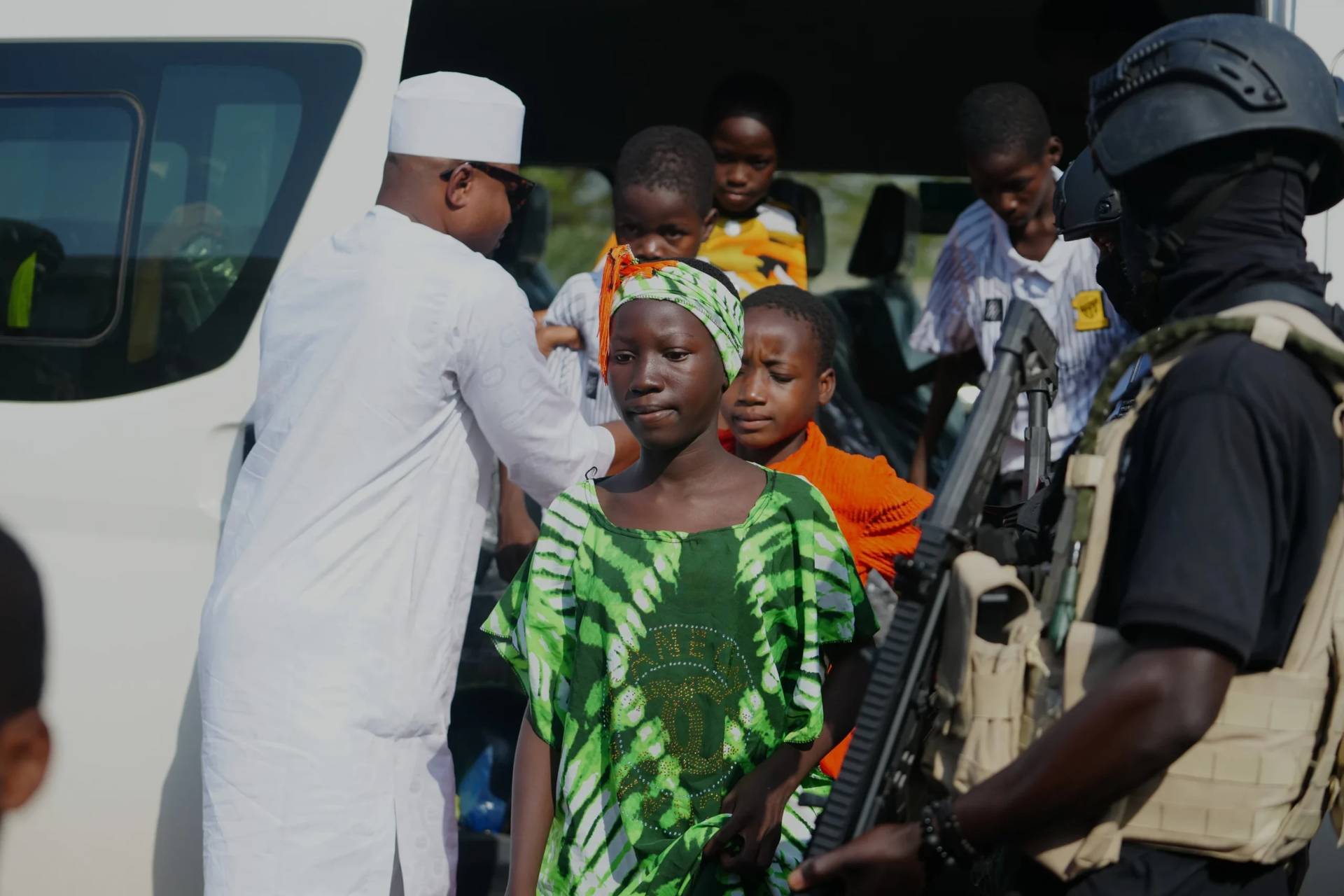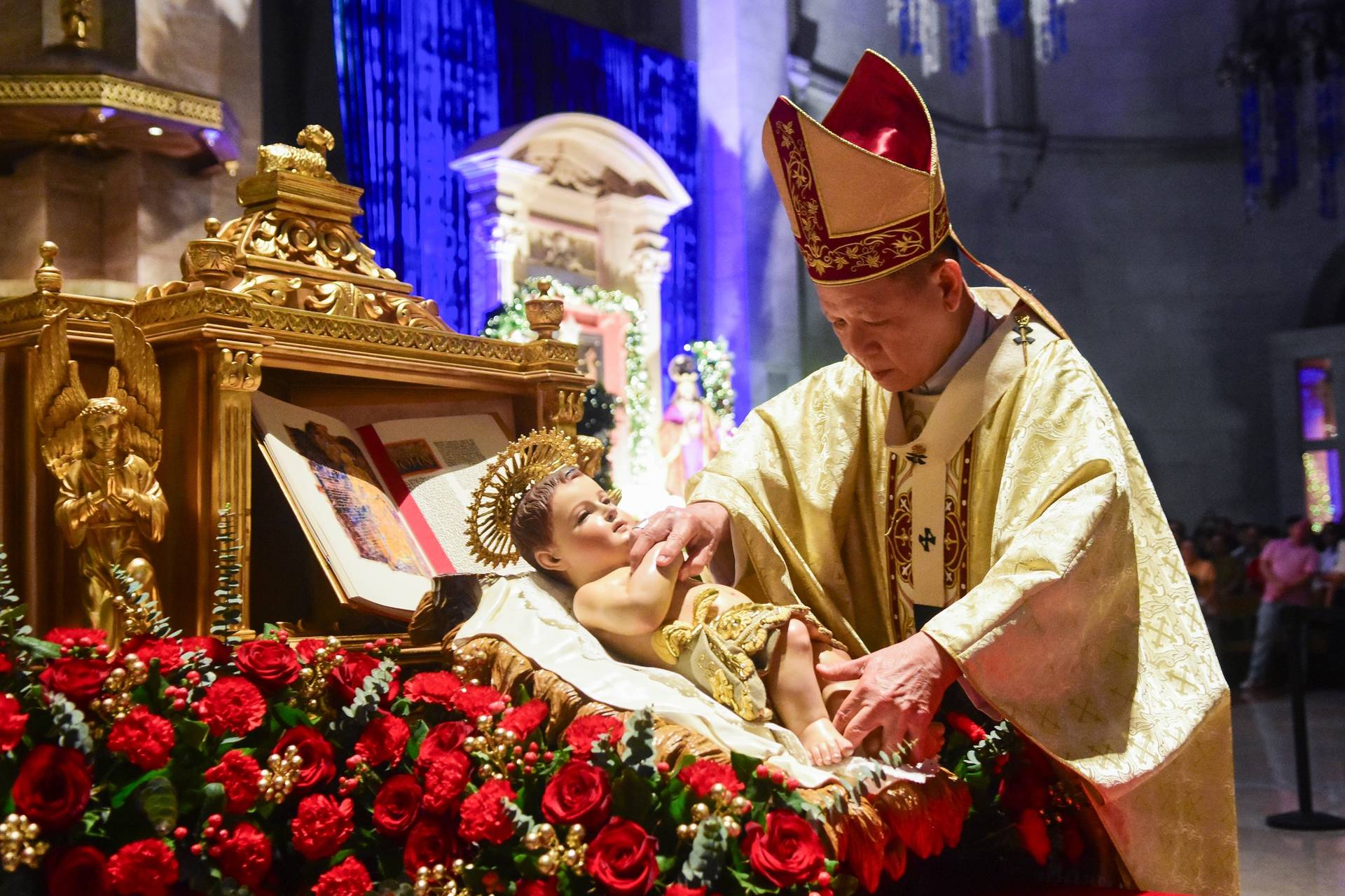YAOUNDÉ, Cameroon – On the first day of his visit to Cameroon, Vatican Secretary of State Cardinal Pietro Parolin was told it was a country that has “been going through insecurity for some years now.”
Bishop Abraham Kome of Bafang greeted Parolin in his role as president of Cameroon’s bishops’ conference as the cardinal began a five-day trip to the West African nation.
“An Islamist sect, Boko Haram has been sowing terror in the country’s north, while proximity with the Central African Republic weakens our eastern borders,” the bishop continued.
Kome was referring to the insecurity in Cameroon’s neighbor that had sent a stream of refugees into the country.
“In the North West and South West regions, we are witnessing a fratricidal war that has been going on for four years now. Many lives have been lost. Over 600,000 have fled to neighboring Nigeria, not to talk of the internally displaced people. Whole villages, school buildings have been completely burnt, state edifices destroyed, and an atmosphere of fear has been installed,” the bishop said.
RELATED: Bishops call for the release of Anglophone ‘political prisoners’ in Cameroon
The insurgency began in the country’s English-speaking North West and South West regions in 2016, after the government violently suppressed protests by Anglophone teachers and lawyers complaining about discrimination by the French-speaking majority.

Parolin was scheduled to visit the capital of the North West region to bestow the pallium – the sign of office for a metropolitan archbishop – on Archbishop Andrew Nkea Fuanya of Bamenda.
“The National Episcopal Conference has tried several times, through messages, to cause the belligerents [in the Anglophone crisis] to show restraint, and to propose reconciliation as the only pathway to peace in the two regions,” Kome told Crux.
The bishop said the efforts had been by Paul Biya, who has failed to meet the bishops despite numerous requests.
However, Kome commended the government for organizing a “Major National Dialogue” a year ago to try and resolve the crisis, and inviting the clergy to take part and even head the Commission on the Promotion of Bilingualism and Multiculturalism and the Commission on the Disarmament of Militia.

The National Dialogue made a series of proposals, including the adoption of a special status for the two Anglophone regions, the restoration of the House of Traditional Chiefs, the immediate resumption of suspended airport and seaport projects in the two regions, the rapid integration of ex-combatants into society, as well as the transfer of Anglophone teachers and lawyers to English-speaking schools and common law courts.
“These initiatives, laudable as they may be, have however failed to stop the violence, and the civilian populations are the innocent victims,” Kome said.
“The Ngarbout Massacre [22 civilians including children and a pregnant woman were killed in their sleep in the North West region on Feb. 14 2020] and that of the school children in the Mother Francisca International Bilingual Academy [seven school children were killed by gunmen on Oct. 24, 2020], as well as the kidnapping, recently of Cardinal Christian Tumi are enough to demonstrate that much still needs to be done for a return to peace,” Kome said.

Tumi, 90, was stopped by gunmen on Nov. 5 when he was travelling to his native Kumbo from Douala. The kidnapping took place in Babessi, located in Cameroon’s North West Region. He was held for 24 hours before being released.
RELATED: Cameroon cardinal says he ‘refused to be tortured psychologically’ during kidnapping
Kome praised the bishops and clergy of the two Anglophone regions for continually working for peace, even “risking their lives in the process.”
“We the Bishops of Cameroon believe that only an inclusive dialogue that brings together all the stakeholders, seeking the truth, regretting the errors of the past, and preserving what unites us could, with the prayers of the faithful, return peace in the two regions, and in the entire national territory,” the bishop said.
On Friday, Parolin held private meetings with Biya and Prime Minister Dion Ngute in Yaoundé, the capital.
“What we are looking for is reconciliation and peace especially in this present situation of other crisis like the COVID-19 pandemic,” Parolin said during his meeting with the president.
A statement from the president’s office later said the cardinal and Biya discussed “a wide range of issues including the socio-political situation in the South West and North West Regions of Cameroon,” adding that Parolin “reassured the Head of State of the willingness of the Catholic Church and the Bishops of both regions to contribute towards achieving a lasting solution.”
The president later tweeted: “Today, I had a cordial conversation with Vatican’s Secretary of State Cardinal Pietro Parolin who delivered a message of peace from His Holiness Pope Francis.”
The cardinal also visited the city’s “Household of Hope,” a center founded 40 years ago by Jesuit Father Yves Lescanne to provide assistance to street children and young prisoners.
Parolin’s visit, according to Vatican Radio “is meant to show—once again and in the context of the current humanitarian emergency caused by the pandemic—the attention of the Church and Pope Francis for the African continent, a land rich in humanity but marked by great suffering.”
The Vatican news service said it is also intended as a concrete sign of “common, supportive, and inclusive commitment to protecting and promoting the dignity and good of all, a willingness to show care and compassion, to work for reconciliation and healing, and to advance mutual respect and acceptance.”
Although the statement did not specifically mention the Anglophone crisis, Parolin’s visit to Bamenda is seen as a concrete sign of the Vatican’s keen interest in a resolution of the conflict.















